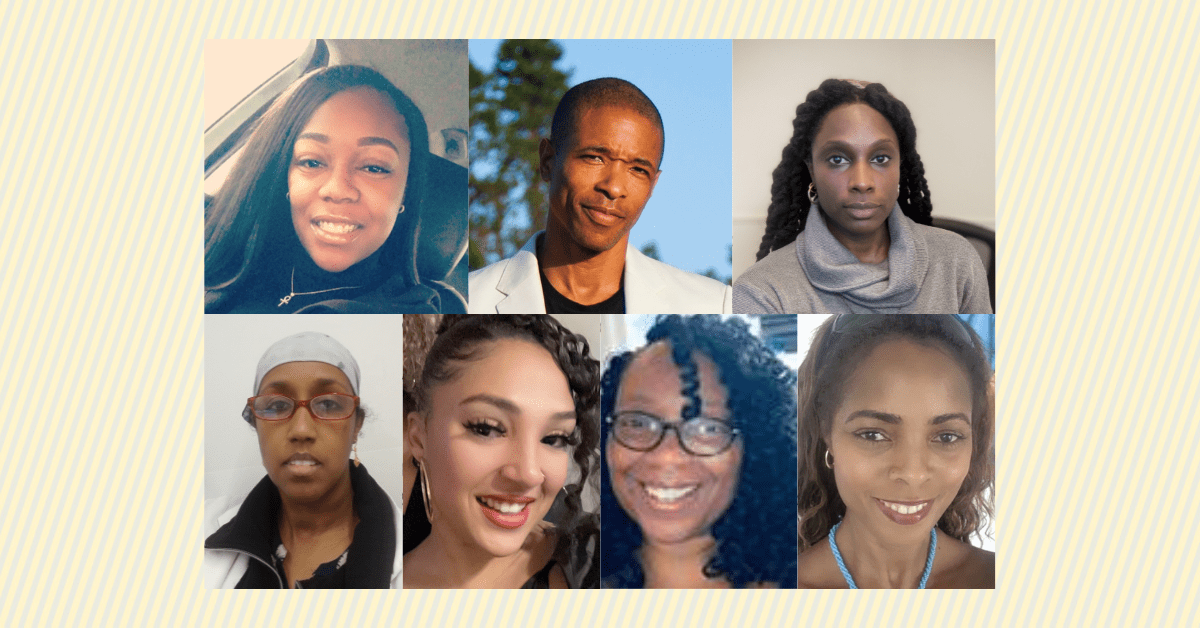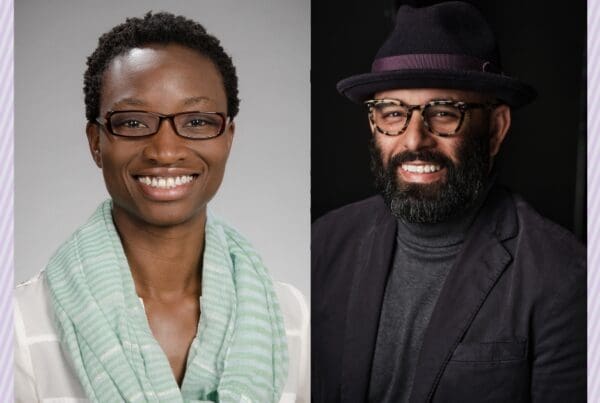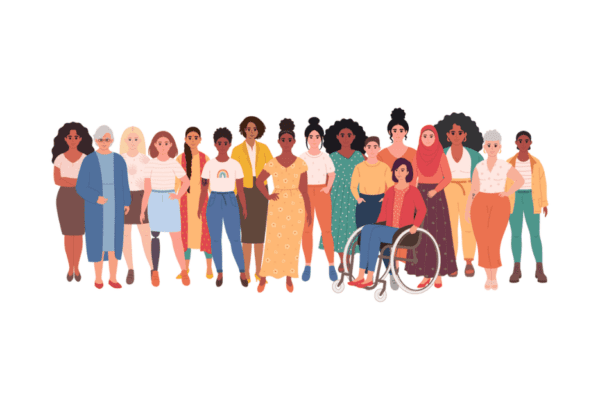Joyful, resilient, diverse, family, community, food, music and laughter — these are words Black employees used to express love for their culture and heritage.
In honor of Black History Month and the year-round contributions of Black employees, we asked Black community members across UW Medicine what their heritage and culture mean to them and what they wish more people knew about their cultural or racial identity.
Alexis Buck, Technology Manager, Epic Inpatient and Clinical Facilities, IT Services
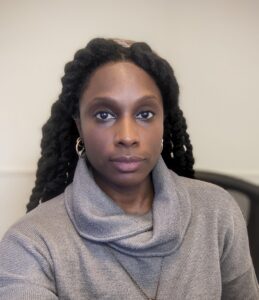
What does your Black or African American heritage mean to you?
I am a proud Black American. I love the richness and diversity of my culture. The variety of language, food, music, art, religious expression and style can be seen across the U.S. regions. The beauty expands across the African diaspora worldwide. I plan to travel to as many regions as possible, starting with Ghana, Nigeria, Barbados, Morocco, Tanzania and Madagascar.
What are your favorite parts of Black culture or favorite Black cultural traditions?
The joy, fun and hospitality of Black Americans warms my heart. Juneteenth is one of my favorite Black cultural traditions. Growing up in Texas it was a huge deal. Glad to see the celebration making its way up north.
Is there something you wish people knew more about your culture or racial identity?
It’s simultaneously a large part of me while also not reflecting the entirety of me.
What can we do to honor Black people and Black cultures at UW Medicine?
Acknowledge Black people as a patient population with outcomes that require different interventions. An example is the poor pregnancy and birth outcomes for many Black women. Taking time to provide a higher level of care based on the data is a great way for a group to feel heard.
Nurjan Cross, CPC, Supervisor, Coding and Charge Capture, Faculty Practice Plan Services, UW Physicians

What does your Black or African American heritage mean to you?
Being Black/African American to me means resiliency is in our DNA.
What are your favorite parts of Black culture or favorite Black cultural traditions?
One of my favorite parts of Black culture is the soul food. It connects us through time across geography from generation to generation.
It allows us to carry on the traditions of our ancestors who endured so many hardships and contributed to our American history, who yet are still not acknowledged. Our food is one way that we as Black people are able to express our love for our family and community. It continues to tell stories of where we’ve been, where we are and where we are going.
Is there something you wish people knew more about your culture or racial identity?
I think the most important thing for people that aren’t of color to know is that there is only one race “the human race.” The term racial identity is very dividing. I think a better term would be what culture or ethnicity do you associate with as a person. In order to get to a point of equality we must start with the language and acknowledgement in which we use to identify other cultures. Once we do that, we can have open, honest and sometimes difficult conversations which will lead to TRUE change.
What can we do to honor Black people and Black cultures at UW Medicine?
There is no better way to honor people than to make sure that there is equal representation of different cultures throughout the workplace at all levels. It’s time to consciously center and celebrate Black empowerment and achievements as well as the legacies of strength and struggles against racism that we continue to face.
Zeynab Jama, RN, Burn and Pediatric Intensive Care Unit, Harborview Medical Center

What does your Black or African American heritage mean to you?
My heritage is very important to me. It represents the strong woman I am, it’s my identity, courage, strong will, charisma and root of my existence.
What are your favorite parts of Black culture or favorite Black cultural traditions?
My favorite part of my Black culture is the family comradery, sisterhood, spices, foods and the love of family. Family is very important; respecting your elders and listening to stories that changed their course of life makes them who they are and what they expect of their children.
Is there something you wish people knew more about your culture or racial identity?
My African culture is loving, kind and hardworking. My people can adapt to and embrace positive changes. Community is very important and a necessity to my African people; we create community and introduce our culture, our beliefs and food to the community. Everywhere as an individual will never feel alone for there is always someone there to embrace you.
What can we do to honor Black people and Black cultures at UW Medicine?
To honor Black people and culture we need to be open-minded, understand our history and learn from our struggles plus our wins in life. I am a product of my culture and beliefs, how I dress and practice my culture is to honor my people. Let me have the freedom to be myself.
Elizabeth Serieux, PhD, MPH, CHES, Senior Manager, Global Engagement and Outreach, Institute for Health Metrics and Evaluation

What does your Black or African American heritage mean to you?
It tells me that strength, resilience, community, creativity and joy are in my bones and are a part of my DNA. I am here because my ancestors lived through some of the worst horrors in history — they survived, they thrived, and they handed down to me the attributes to do and be even better.
What are your favorite parts of Black culture or favorite Black cultural traditions?
As a Black woman who was born and raised in the Caribbean, the favorite parts of my culture include frequent gatherings with family and friends, music, dancing, love of laughter and a good time, as well as an indomitable “can do, will do” spirit.
Is there something you wish people knew more about your culture or racial identity?
I wish people actually recognized that Black people are not all the same — we do not all speak for each other; we share many things, but we are also individuals with unique perspectives to share and contributions to make.
What can we do to honor Black people and Black cultures at UW Medicine?
Recognize and publicize, year-round, the myriad contributions that Black people have made and continue to make to our world in the face of ongoing discrimination and oppression. Actively contribute to changing the often-negative narrative that is unjustly perpetuated about Black people all around the world.
Precious Simmons, CMA, Medical Assistant, The Heart Institute at UW Medical Center – Montlake

What does your Black or African American heritage mean to you?
It means being resilient in the face of adversity. It is pushing through and not giving up even though the odds are against us. My heritage was built on unity, love, patience and humility. Black/African American people have made major contributions to the world, involving political movements, science, technology, education and literature — to name a few. I am extremely proud to be a part of such a creative and influential culture, a culture that was historically made to feel inferior and to see more of us riding the first wave of success and paving the path ahead for the generations that succeed us.
What are your favorite parts of Black culture or favorite Black cultural traditions?
My favorite part of Black culture is coming together for gatherings such as birthdays, holidays, family reunions and other celebrations. Just being able to congregate and enjoy each other’s company with food, games, music, dancing, laughing and lots of love is very satisfying and fulfilling. Moments like these are priceless.
Is there something you wish people knew more about your culture or racial identity?
I wish people knew more about the core of what it means to be part of my culture than the world’s negative portrayal of us. If people take time to look, immerse in our heritage, reflect on the barbaric treatment of our ancestors and the lifelong indoctrination that the color of our skin is less than beautiful, they will be privileged to know some of the most resilient human beings that ever existed. With this new foresight, you might finally recognize us as the most loving, welcoming and uplifting group. We are not what the world sees as brute and untamed. Perhaps you simply caught a glimpse of us in the moment when we finally decided to defend our rights and liberties. The time when we told the system enough is enough. Maybe it was the exact moment when we were trying to cleanse the world’s stained eyes so they can see that we are worthy to work for the successes others have been endowed with. That might be the moment when we finally hardened ourselves and yet, you still find a lot of softness despite it all.
What can we do to honor Black people and Black cultures at UW Medicine?
Continue to spotlight Black/African American employees throughout the year, not just on Black History Month. Create a more inclusive and diverse environment. Grant us more opportunities to showcase our creativity. Put us in a fair position to work for leadership roles.
Seairra Wheatley, MSW, LSWAIC, SUDP, Maternal Health Social Worker, UW Medical Center – Northwest

What does your Black or African American heritage mean to you?
My heritage is so important to me. Without the individuals who came before me, I wouldn’t have a heritage. I reflect on the history of my ancestors, the change makers and the revolutionaries who exhibited true resilience during a time when Black people were not supposed to speak up.
What are your favorite parts of Black culture or favorite Black cultural traditions?
My culture is my favorite for many reasons, including our history, music, food, dialect and the way we celebrate all things. The influence Black culture has had across the world.
Is there something you wish people knew more about your culture or racial identity?
What I would like for people to know and remember is that we are more than just people that come from slavery. Some of our current barriers with the world come from our historical trauma that we are still overcoming. But throughout it all, we are true trailblazers that contributed to changing history and are continuing to change history.
What can we do to honor Black people and Black cultures at UW Medicine?
UW Medicine honoring Black people and Black Cultures would look like creating BIPOC scholarships, creating spotlights to highlight Black people within the entity, and hiring more Black people in leadership roles. Lastly highlighting out loud the contributions to medicine by Black trailblazers.
Marv Whitson, Director, Technology Integration and Operations Support, Faculty Practice Plan Services, UW Physicians
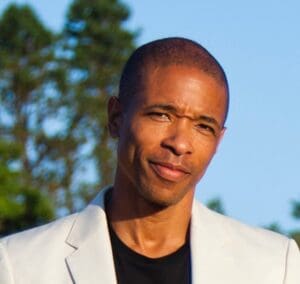
What does your Black or African American heritage mean to you?
There’s a line in a song from the “Hairspray” musical sung by Queen Latifah “I know where I’m going, And I know where I’ve been.” I lean on those words daily because it reminds me of the struggles growing up as an African American and the many obstacles I overcame along the way because of the people who saw something in me and others that looked like me. It’s about acknowledging, celebrating and honoring those people that paved the road for me as an African American man (and others) through their sacrifices and humanitarianism regardless of their own color, race, gender or religion. It’s about those people past and present who inspired me to be a better person professionally and personally and the importance of giving back to the community so I can help others benefit as I did.
What are your favorite parts of Black culture or favorite Black cultural traditions?
Black culture to me is rooted in community and family. At times it feels like I am part of one very large family regardless of what city I am in. Like most African American families, gatherings are full of great food, music and dancing. It’s about coming together to celebrate life and our times together despite life’s challenges. “It’s all about happiness and joy,” as mom would say.
Is there something you wish people knew more about your culture or racial identity?
The African American culture itself represents a very diverse culture. I only have my family as a reference point, but we are a multi-cultural, multi-racial family. We quickly learned that there was power in diversity and inclusion within our own family. I personally have been enriched and have learned a lot from my non-African relatives and vice-versa. I think for most African Americans we see the world the way we want to be seen, with inclusion and openness and free of discrimination.
What can we do to honor Black people and Black cultures at UW Medicine?
As an academic organization, highlight the contributions African Americans have made to the UW Medicine organization, our community, our nation or world when applicable. Often times I am perplexed that outside our organization we hear more about African Americans excelling more in sports and entertainment than academia. There are great African American inventors, writers, scientists, doctors, professors, etc. that should also be given some airtime. Lastly, highlighting our African American leaders and our notable accomplishments here is important as it shows we have invested in our minority leaders, and that there is a path for other minorities and a place at the table for all of us.
Editor’s note: Responses were lightly edited for length, clarity and style.
